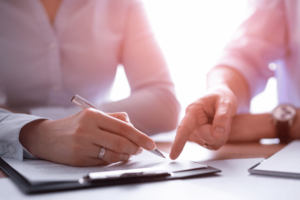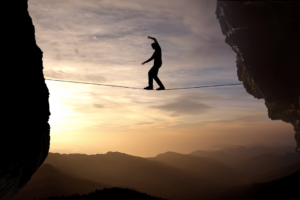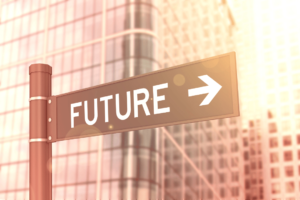Product Liability: Key Trends, Risks, and Solutions for Businesses and Consumers

Product liability is one of those things businesses don’t always think about until it’s too late. Whether you’re a manufacturer or just selling someone else’s product, a single defective item can land you in a lawsuit faster than you can say “recall.” But fear not! Today, we’ll unpack what product liability is, the risks involved, and how both businesses and consumers can stay protected.
Types of Product Defects: Know What Could Go Wrong
When we talk about product liability, it’s all about defective products, but what exactly does that mean? There are three main types:
Design Defects: This happens when the very blueprint of the product is flawed. Think of a coffee maker that’s prone to overheating because it was designed with poor insulation.
Manufacturing Defects: The design is fine, but something went wrong during production. Maybe a batch of toys missed the quality check and ended up with small, sharp parts that pose choking hazards.
Marketing Defects: These involve poor instructions or missing warnings. Imagine buying a cleaning solution that doesn’t warn you about its flammability—uh, yikes!
Emerging Trends in Product Liability: The Future is Now

With tech evolving at breakneck speed, product liability isn’t just about cars and toasters anymore. We’re talking AI, IoT, and automation. For example, when a self-driving car gets into an accident, who’s to blame—the driver, the car manufacturer, or the AI programmer?
And then there’s e-commerce, where third-party sellers introduce more variables. You buy a phone charger from an unknown seller on Amazon, and it explodes. Who’s liable—the seller, the platform, or the manufacturer? These are questions businesses need to consider more and more.
And don’t even get me started on global supply chains. Products often cross several borders before landing in your shopping cart, which complicates the process of holding someone accountable when something goes wrong.
Key Defenses in Product Liability Cases
Now, if you’re a business facing a product liability claim, you’re not automatically toast. There are some defenses you can use:
Assumption of Risk:
If the customer knew about the defect and still used the product, they may have assumed the risk. Like using a hairdryer in the bathtub despite the warning—yeah, don’t do that.
Product Misuse:
If someone uses your product in a way it wasn’t intended and gets hurt, you might not be liable. For instance, using a chair as a ladder and then falling is on the user.
Comparative Negligence:
If the customer is partially to blame for the incident, your liability could be reduced.

Strict Liability: What It Means for Manufacturers
The term strict liability means that if your product is defective and causes harm, you could be held responsible—period. It doesn’t matter if you took every precaution under the sun. So, even if there’s no negligence on your part, you could still end up writing checks to cover medical bills or damages.
Consumer Responsibilities: Stay Safe Out There
On the flip side, consumers can do a lot to protect themselves. If you’re buying a product, do your research. Read reviews, check for safety ratings, and don’t ignore warning labels.
Also, don’t be shy about reporting issues. If you encounter a defect, notify the company immediately, and file a report with a consumer protection agency. The faster the problem gets addressed, the better for everyone involved.
Small Business and Product Liability: What You Need to Know
If you’re running a small business, product liability might feel like a distant threat, but it can hit you just as hard as a big corporation. For smaller companies, the key is to have robust quality control processes. Even if you’re not manufacturing products, just selling something defective can come back to haunt you. And yes, that means product liability insurance is a must, even if it feels like an unnecessary expense.

Mitigating Product Liability Risks: Avoiding the Legal Landmines
So, how can businesses dodge these lawsuits? Quality control is king. From the design stage to production and distribution, you need to ensure every product meets safety standards.
Comprehensive product testing:
Make sure to catch any potential defects before products reach the market.
Clear instructions and warnings:
You’d be amazed at how many cases boil down to poor communication. Make sure your products come with proper labels and warnings.
Stay on top of regulations:
Laws change, especially with emerging technologies. Keep yourself updated to avoid getting caught in the legal crossfire.
Insurance and Financial Protection: Have a Safety Net
If you’re a business owner, product liability insurance isn’t just nice to have—it’s essential. It can cover everything from legal fees to settlements if your product causes injury or damage. Real-life cases show that even small mishaps can lead to hefty claims. Think about the rechargeable battery company that got hit with lawsuits after their batteries exploded during charging.
The Future of Product Liability: Adapt or Get Left Behind

Product liability laws aren’t static, and neither is the world we live in. New tech, sustainability concerns, and global commerce are all changing the landscape. Businesses need to stay flexible, adapting to new regulations, consumer expectations, and ethical standards.
Whether it’s developing safer products or preparing for the unknown challenges of the future, staying informed and prepared is the best defense.
Product liability might sound scary, but with the right precautions, businesses can navigate the risks, and consumers can make safer choices. Whether you’re selling products or buying them, a little knowledge can go a long way in avoiding costly mistakes and ensuring a safer marketplace for everyone.
Need Expert Legal Advice on Product Liability?
Navigating the complexities of product liability can feel like a maze, but you don’t have to go it alone. Whether you’re facing a product-related lawsuit or simply want to protect your business from future risks, Attorney Raymond W. Ganim Personal Injury Law is here to help. Our team specializes in product liability cases, and we’re ready to guide you through every step—from risk mitigation to legal defense. Reach out today, and let’s make sure you’re covered!
